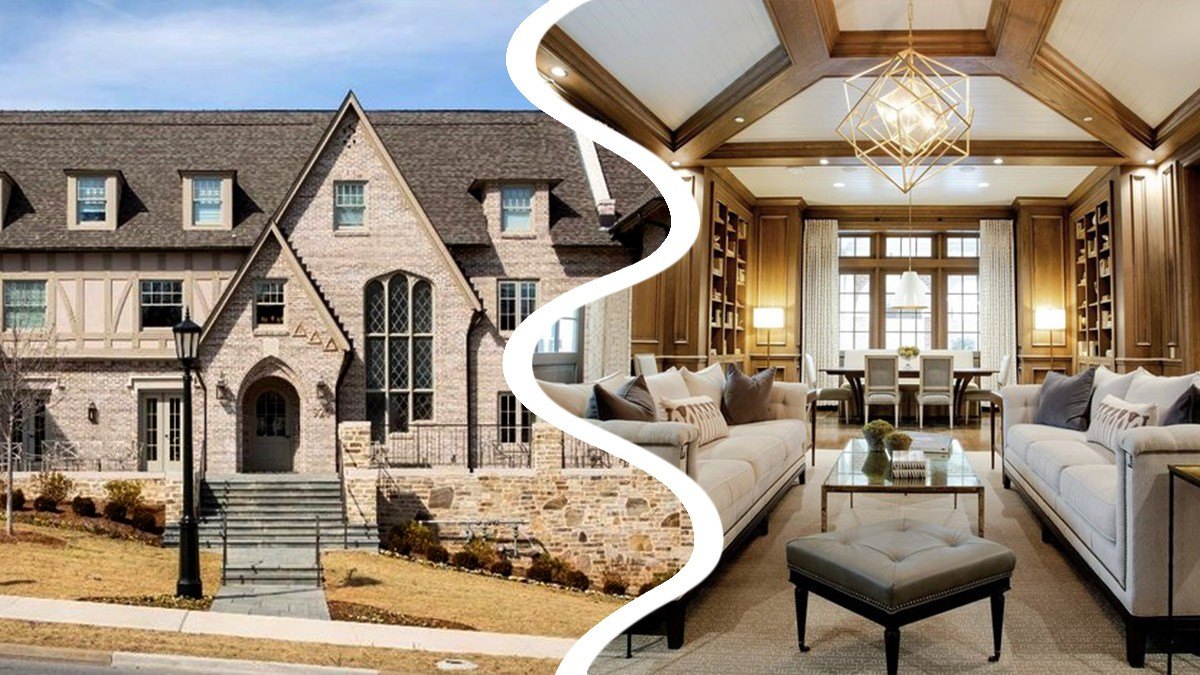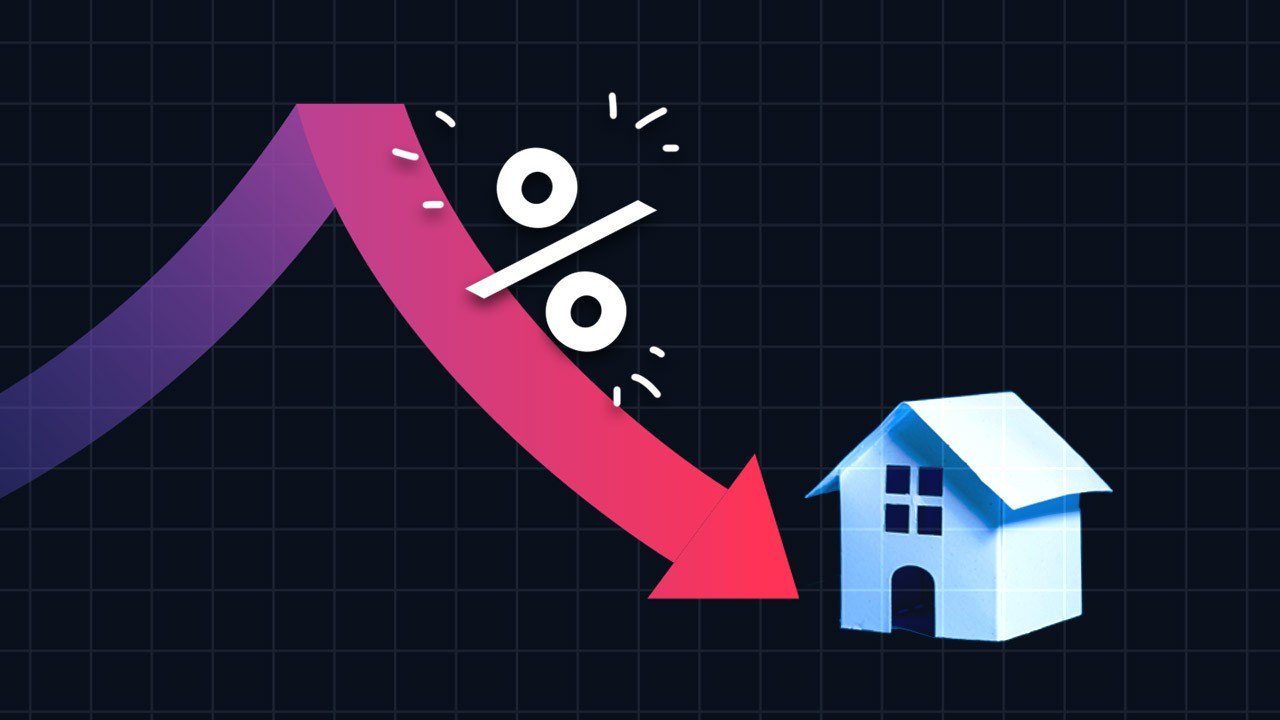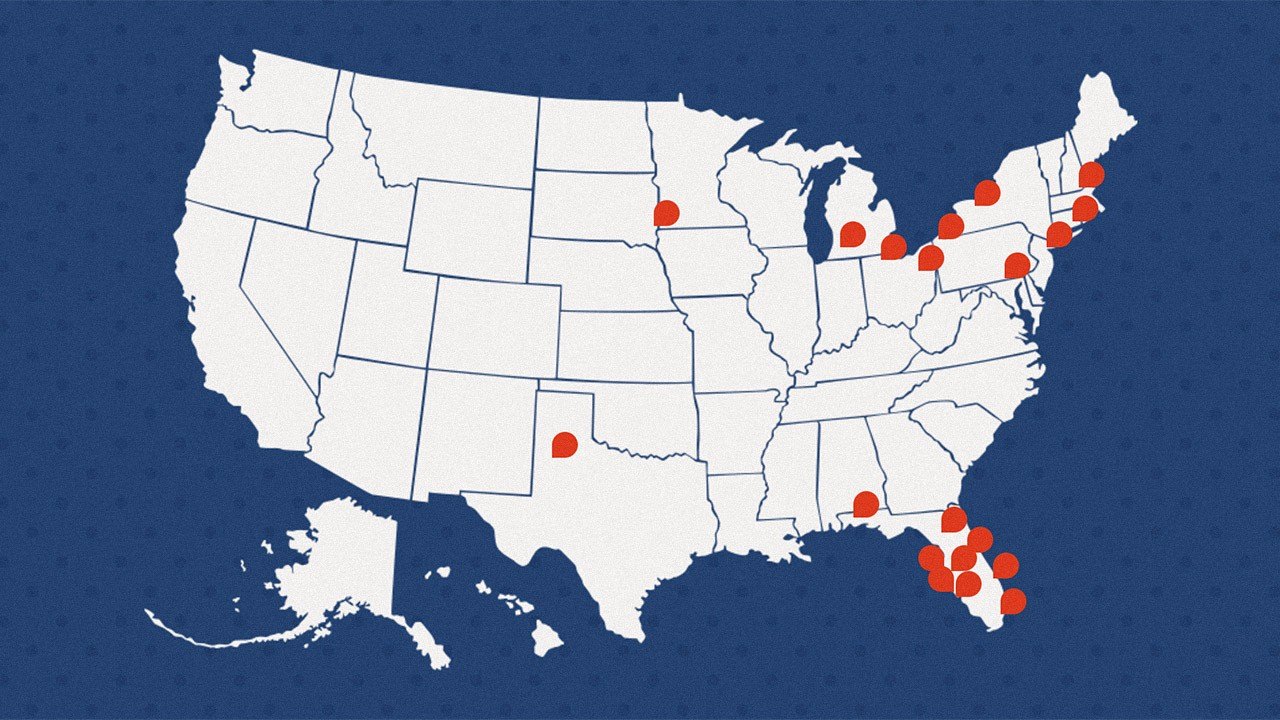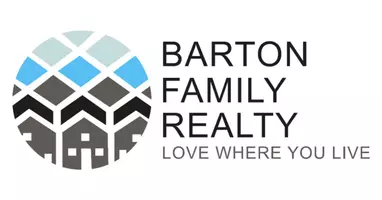SINK (Single Income No Kids) Women Are Buying Homes in Droves—Here's How Much You Need To Buy a Home on Your Own

Getty Images (5)
Kristi Eaton had been waiting for the right time to buy a house. By the time she turned 39, she was sick of waiting.
“I always thought I would purchase a house with a partner,” Eaton says. “When that never materialized, I just decided I should do it on my own.”
In March 2024, she took the plunge and bought a home in Tulsa, OK, and she’s thrilled to no longer have to deal with increasing rents and limited space.
Eaton, the owner of a PR agency, is part of a growing sector of homebuyers known as SINKs—single income, no kids.
Without having to spend cash on kids, child care, or college funds, SINKs have more expendable income to put toward things like a house—an advantage that definitely comes in handy in today’s high-price market.
“I had saved a lot for a house over the years, but never felt ready until all of a sudden, I did,” Eaton says.
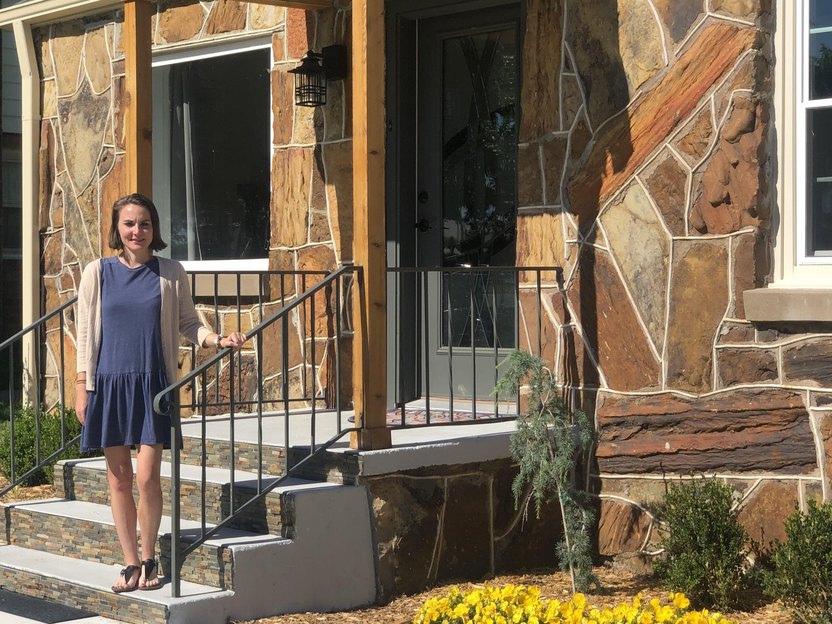
Kristi Eaton
No partner, no kids, no problem: Why female SINKs are buying homes
The demographic that vice presidential candidate J.D. Vance called “childless cat ladies” is taking control of its own destiny and buying homes in droves.
Single-person homeownership has been historically dominated by women, according to Realtor.com® senior economist Ralph McLaughlin. Single women made up 19% of all homebuyers in 2023, according to the National Association of Realtors®. The U.S. Census Bureau reports that single women own 20.3 million homes in the U.S., while single men own 14.9 million.
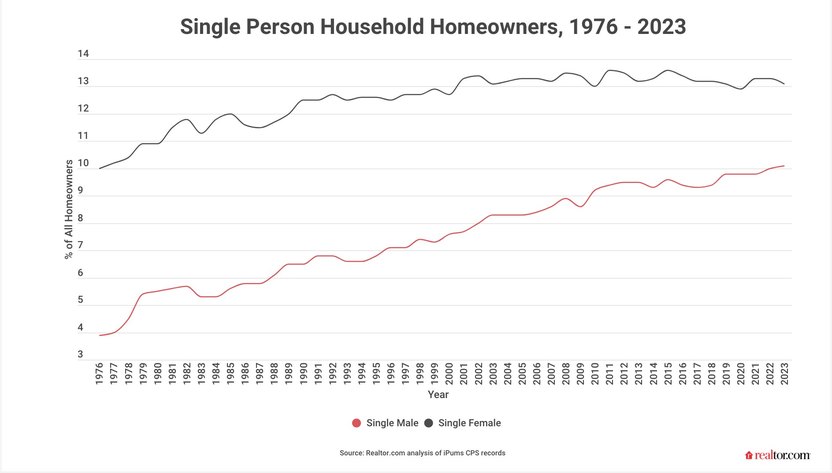
Realtor.com
“Single-female homeownership tends to be in more aged markets, and at least partially reflects the fact that females tend to outlive males and that older females are more likely to be divorced and widowers,” McLaughlin explains.
Real estate agents also say that many of their clients are female SINKs.
“I have a lot of SINK clients, and most of them are women between the ages of 35 and 65,” says Stacy Miller, a real estate agent at Re/Max Fine Properties in Phoenix.
Many of her older SINK clients move to Arizona from out of state to be closer to their grown kids, grandkids, or elderly parents, or because they are newly divorced or widowed, says Miller.
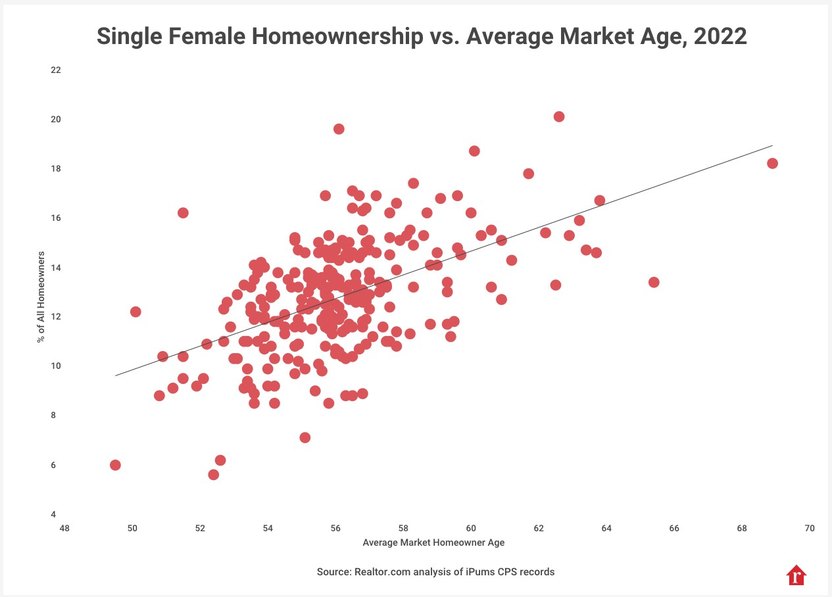
Realtor.com
Media professional Alyson Austin, 55, has bought and sold four homes as a SINK. She purchased her fifth in 2002, a home in Wells, ME, so that she could live with and care for her elderly widowed mother while working from home.
“This prevents additional hassles that some friends have faced with their elderly parents at the end of their lives,” she says.
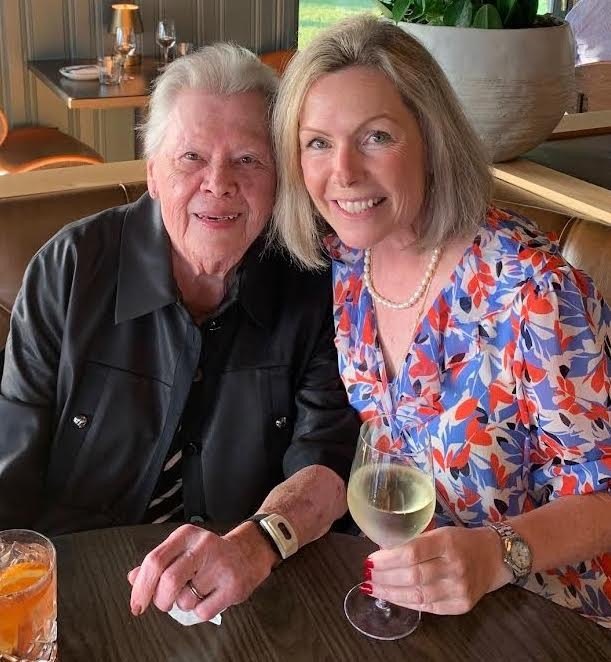
Alyson Austin
Top spots for SINK homeowners
SINKs value safety and security, and often gravitate toward areas where they can get more bang for their buck.
“Regardless of gender, single-person homeownership tends to be higher in smaller, less expensive markets, presumably where it’s easier for single-income households to afford homes,” McLaughlin says.
Eight of the top 10 metros for single female homeownership in 2022 currently have a lower median home price than the national average.
The top five metros for single female ownership are Barnstable Town, MA; Topeka, KS; Rocky Mount, NC; Wildwood-The Villages, FL; and Ocala, FL.
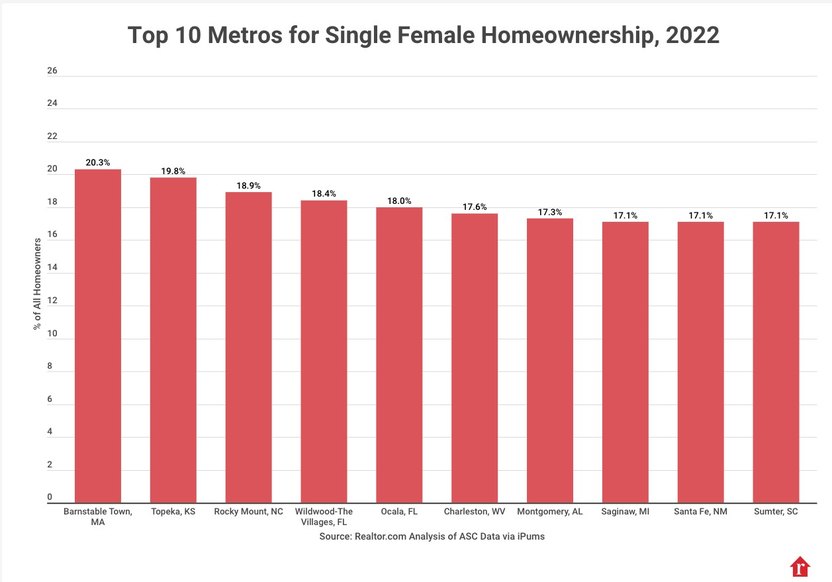
Realtor.com
The top spot for single male ownership is Lake Havasu City, AZ. Ohio is the most popular state for single male homeowners, with five metros in the top 10: Springfield; Mansfield; Toledo; Lima; and Youngstown.

Realtor.com
Advantages of being a SINK homebuyer
The No. 1 advantage of being a SINK owner is that they don’t have to accommodate anyone but “me, myself, and I.”
“In my experience, SINKs’ decision-making process is much more efficient because they don’t have to compromise to the wants or needs of another, or ‘be on the same page’ with a co-buyer,” says Robert Dodson, sales manager and broker at Charles Burt Realtors in Joplin, MO.
That was certainly the case with Eaton, who admits, “It was scary making all the decisions on my own, yet it was also nice because I didn’t have to consult with anyone.”
SINKs also don’t have to worry about being in a certain school district, which gives them much more flexibility in terms of where to buy. They can also house hunt in walkable, urban areas with a vibrant nightlife, because they don’t have to worry about needing a kid-friendly neighborhood.
The challenges of buying a house on one income
Today, the typical monthly housing payment—assuming a median list price of $439,950, a mortgage rate of 6.49%, and a 20% down payment—is around $2,222, excluding taxes, insurance, and other fees.
So for SINKs, making sure they will be able to afford a property on just one income is something that weighs heavily on their minds.
“I always made sure my credit score was as high as possible. I think that having a credit score of more than 820 has helped me in the home purchase game,” Austin says.
Other SINKs scrimp and save for years and years.
“I lived with my parents for almost a decade after college to be able to save a hefty down payment that would make it feasible for me to pay my resulting mortgage alone,” says Karla Cobreiro, a publicist who purchased her Doral, FL, condo solo in 2022.
The 33-year-old says she kept waiting until she had a better job and made more money to put herself in a better financial position.
“Then, I kept waiting until I had a higher down payment saved up,” she says. “Then, I wanted a big emergency savings account since I was going into this alone. Sometimes, I wish I hadn’t waited as long or thought about it as much!”
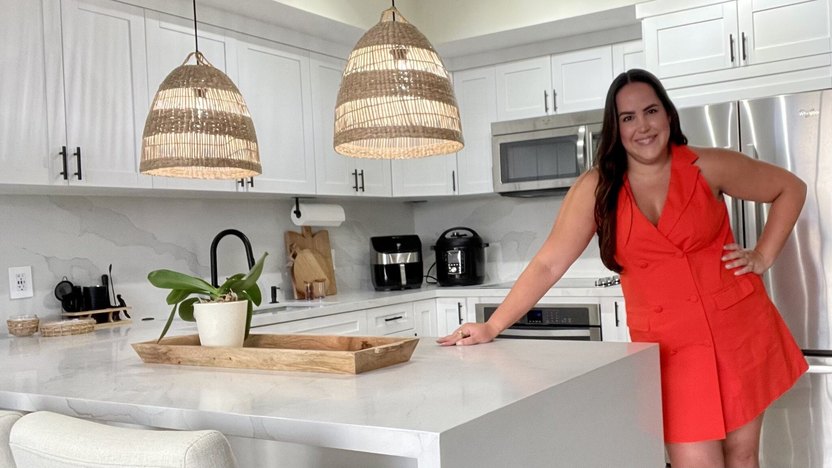
Karla Cobreiro
When Cobreiro finally did take the plunge, she says being a SINK made the homebuying process all the more challenging.
“I had to save a lot of money alone, get pre-approved with just one salary, do all the legwork of searching and touring by myself, then pay for and oversee renovations on my own,” she says.
Major renovations are something SINKs don’t usually want to take on by themselves.
“Depending on their experience with DIY, a lot of my SINK clients want to have a home that doesn’t have tons of projects,” says Samantha Sousa, broker and owner of Sousa Valley Real Estate in Visalia, CA.
Another challenge of buying a home solo is that you don’t have a built-in safety net.
“I always joke ‘It’s just me and this mortgage’ to my friends now,” Cobreiro says. “Though I live comfortably, I am also aware that I don’t have a backup person or support system if I get laid off tomorrow.”
Despite the pressures she faces, Cobreiro says she has no regrets about buying a place on her own.
“Overall, it just felt like such an incredible achievement and accomplishment,” she says.
Categories
Recent Posts
